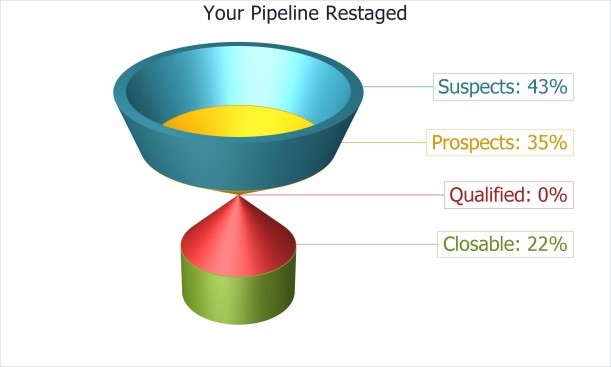In this blog, we discuss the best habits of highly successful salespeople and sales managers. Being an extraordinary sales manager is grueling and time-consuming.
It requires attention to detail, the ability to have tough conversations with those who are not meeting their numbers, the desire and commitment to grow yourself and your salespeople, consistent activity and patience.

The sales management activities that you perform today create the results that you achieve today.
What activities are you doing now that are creating your current unsatisfactory results? It is up to us as sales leaders to set higher standards for sales behaviors and hold people accountable so that we get better results.
It is a given that successful sales management requires contributions on many levels: skill, time, effort, effective execution, and systems and processes to support coaching, performance management and recruiting.
To help understand what makes a successful sales manager, it is helpful to review the Habits of Highly Successful Salespeople.
I recently asked the participants of a workshop to identify and share those habits that they believed contributed to the success of their best salespeople. Below are some of the common habits identified:
- Develops great relationships
- Networks regularly
- Good time management skills
- Gets to decision makers
- Selective in prospecting
- Provides exceptional customer-service
Then I asked them to talk about the flip side of the list – those habits that inhibited or hurt a salesperson’s ability to close more business. Below are some of the habits they identified:
- Sells on price
- Inconsistent prospecting
- Procrastinates
- Presents to the wrong people
- Sells to anyone that "fogs a mirror"
- Poor prioritization skills
- Is too comfortable
How about you and your habits? What are those habits that you can point to that you KNOW have a positive impact on your team’s sales behaviors and results? Here are some that I observe and hear about:
- Coaches in-the-moment to get a deal closed
- Reports sales results
- Makes joint calls
- Sets goals
- Conducts regular sales meetings
- Reviews and reports pipeline
This is a good list and with some additions, it can become a great list when we identify the skills of a great Coach, one of the most critical roles of an effective sales leader. To examine what else you might want to consider, take a look at the following list of elements necessary for successful coaching:
- Debriefs sales calls effectively
- Asks quality questions
- Controls emotions
- Allows salespeople to fail
- Implements and manages the execution of a consistent sales process
- Motivates when coaching based on individual/personal goals
- Coaches to improve skill and change behavior
- Gets sales people to follow through on commitments
It’s not enough to just have the skill. In order for managers to be successful at having a sales team built for growth, the manager must be in the habit of using those skills.
Being an extraordinary sales manager is grueling and time-consuming. It requires attention to detail, the ability to have tough conversations with those who are not meeting their numbers, the desire and commitment to grow yourself and your salespeople, consistent activity and patience.
Like the coach of a winning team or conductor of an extraordinary symphony, you have the ability to positively affect the success and the lives of your salespeople and company.




.jpg?width=1920&name=board-game-businessman-challenge-1040157%20(1).jpg)
 Figure 1
Figure 1